Exploring the Fusion of Opera and Gaming Culture
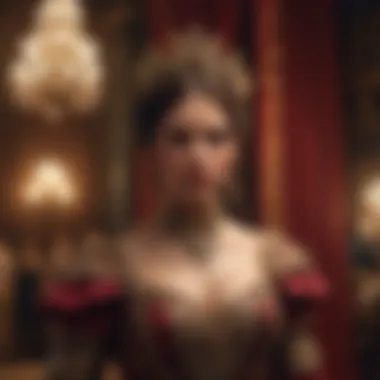
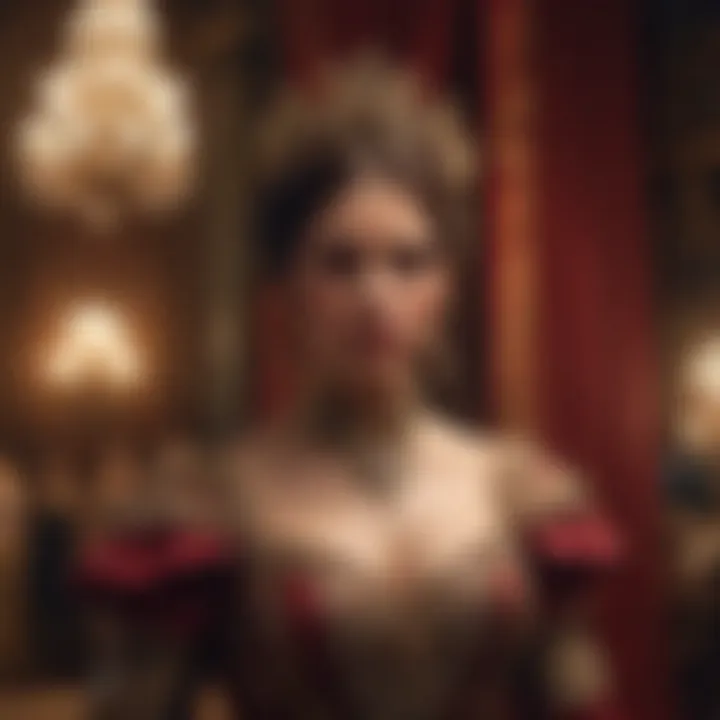
Intro
The blending of opera and gaming culture may strike some as an odd pairing, yet this peculiar synergy reveals profound implications for both art forms. At a glance, it’s easy to view opera as a relic of the past, something confined to grand theaters filled with velvet seats and elaborate costumes. Meanwhile, gaming, with its ever-evolving landscape, appears as a hotbed for innovation, dare I say, an arena for the young and rebellious. However, scratch beneath the surface and you’ll find that the intricate narratives, emotional depth, and powerful audio experiences of opera hold surprising resonance within the realms of gaming.
Games today are more than just a pastime; they serve as narratives that engage us emotionally, much like a soaring aria or an intense symphony would. So what happens when these two worlds collide? The answer lies not just in the games we play but in the cultural implications that this relationship fosters.
As we delve into this exploration, we’ll look at specific games that weave operatic elements into their fabric. From the soundtrack that pulls at your heartstrings to the storytelling that can rival some of the great operas, there's much to unpack. Also, we’ll address how these incorporations enrich the gaming experience, enhancing emotional engagement and diversifying appreciation for operatic artistry.
Expect to see discussions on gameplay mechanics and how they can mirror the dynamic movements of an opera. We’ll also touch upon art styles that reflect the grandeur of operatic productions and how character development can channel the complexities found in a traditional opera.
Ultimately, this narrative seeks not merely to draw lines between two distinct expressions of art but to highlight the beauty found in their intersection. Join us as we uncover how operatic themes are sprouting wings in the world of gaming, promising a future where both culture and technology can prosper side by side.
Understanding Opera in Contemporary Culture
When we speak about the role of opera today, we can’t simply brush it off as an art form left behind in history. Opera resonates deeply within multiple layers of modern culture, particularly in its intersection with gaming. Understanding Opera in Contemporary Culture is essential because it illuminates how this venerable art form continues to shape narratives and enrich experiences across various mediums. It's more than just arias and dramatic gestures; it's about emotion, storytelling, and the universal human experience.
Discussion of Opera's Historical Context
Opera, with its grand scope and rich traditions, has traveled through centuries, evolving and sometimes transforming significantly. It began as a celebration of classical characters and European history, drawing audiences into compelling tales through music and performance. Initially supported by the elite, opera reflected societal values of particular eras, often serving as a mirror where society could see its aspirations and struggles.
Yet, this cultural heft didn’t stay locked in the past. Over time, opera has found its place in contemporary discourse, buoyed by innovative directors and composers who challenge and redefine established norms. For instance, operas that once depicted only regal dramas are now retelling stories that resonate with today’s audiences—like exploring themes of identity, love, and societal issues. This transformation allows opera to remain relevant, positioning it as a vital cultural touchstone that might also resonate within the gaming domain where storytelling and emotional engagement are paramount.
Opera's Evolution in the Digital Age
As technology advances, opera has discovered new platforms to reach audiences. The digital age has ushered in new forms of engagement. Livestream performances of grand operas give fans a chance to experience, say, La Traviata without stepping foot in a theater. This accessibility doesn't only democratize opera; it also carves space for cross-genre exploration.
In gaming, characters often embody operatic elements—think of narratives that incorporate deep emotional arcs reminiscent of operatic tales. This synthesis allows for a blending of traditions and experiences. Music composed for video games frequently channels operatic styles, employing orchestration techniques that echo those found in classic operas. The fluidity of such boundaries opens doors—not just for storytelling in games but also for a richer appreciation of operatic art in everyday media consumption. Players aren't merely consuming content; they're experiencing narratives that can rival the emotional storytelling seen in operas of yesteryear.
Opera's journey through the digital age exemplifies adaptability. As it continues to intertwine with modern cultural forms like gaming, it thrives, proving that classic arts can not merely survive but flourish when given a contemporary context. Evolving traditions make opera much more than just an artifact. Rather, it becomes a living, breathing form that impacts and inspires across multiple platforms, including gaming.
The Role of Storytelling in Gaming
Storytelling has become the linchpin of modern gaming. It's this narrative framework that transforms a mere collection of pixels into a world that players can lose themselves in. A great story keeps players engaged, propelling them from one level to the next as they become emotionally invested in characters and their journeys. The intertwining of storytelling with gameplay creates an experience that resonates on a personal level, making the stakes feel real and the achievements more meaningful.
As gamers, we often seek experiences that do more than entertain; we crave stories that evoke feelings, challenge our perspectives, and invite us to reflect on our own lives. This emotional connection is where games tap into the fundamental human desire for storytelling. While narrative arcs often vary—from heroic quests to moral dilemmas—each serves as a vessel for broader themes such as love, betrayal, redemption, and sacrifice. Thus, storytelling in gaming isn’t just a backdrop; it shapes player choices, enhances the gameplay experience, and can even influence how we interact with each other and our environment.
Narrative Structures in Modern Games
In the realm of modern games, narrative structures have evolved beyond linear storytelling. Developers now incorporate multiple narrative arcs, branching paths, and player-driven choices that influence the outcome of the story. One notable example is the Mass Effect series, where the player's decisions can fundamentally alter character relationships and world events. This choice-driven model empowers players, making their journey feel unique and personal.
Another approach is the use of episodic storytelling, where games are released in segments that unfold over time. Telltale Games, for instance, has mastered this technique with titles like The Walking Dead. Here, narrative pacing becomes crucial as each episode leaves players craving more, much like a compelling TV show.
Moreover, games often utilize flashbacks and side tales to deepen the primary narrative. This intricate storytelling can provide context, reveal hidden motivations, or even reshape how players perceive the main characters. For instance, in The Last of Us, flashbacks about Ellie's past not only enrich the narrative but also heighten the player's investment in her survival.
Comparison with Traditional Operatic Narratives
When looking at the storytelling methods in gaming, we can draw fascinating parallels with traditional operatic narratives. Both mediums share a strong emphasis on drama, emotion, and character development. In opera, just as in games, stories are often epic in scope, dealing with love, tragedy, and personal conflict. Characters grapple with intense emotions, making choices that drive the plot forward.
In operas like Madama Butterfly or Carmen, the use of musical motifs enhances the narrative, signifying character emotions or foreshadowing events. Similarly, video games now use musical scores not merely as a backdrop, but as a tool for storytelling. The evocative score of Journey, for instance, intertwines seamlessly with the player's exploration of a desolate landscape, enriching the emotional narrative.
"The power of storytelling, whether through an aria or level-up, lies in its ability to create connections, not just among characters but with the audience themselves."
In both operas and games, the synthesis of characters, music, and narrative serves a dual purpose: it engages and also invites reflection on human experiences. The similarities underscore how both forms of art can shape shared human narratives, inviting audiences, be it in a theater or behind a console, to engage deeply with the unfolding story.
As we delve into the intricate world of storytelling in gaming, it's clear that this intersection brings to light unique insights into the human experience, paralleling the grand operatic traditions that have moved audiences for centuries.
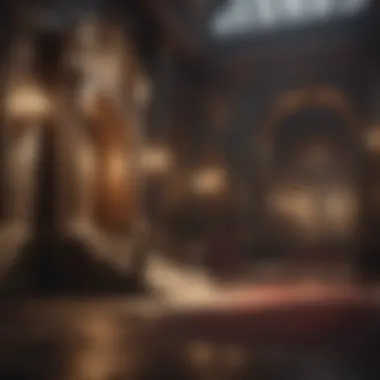
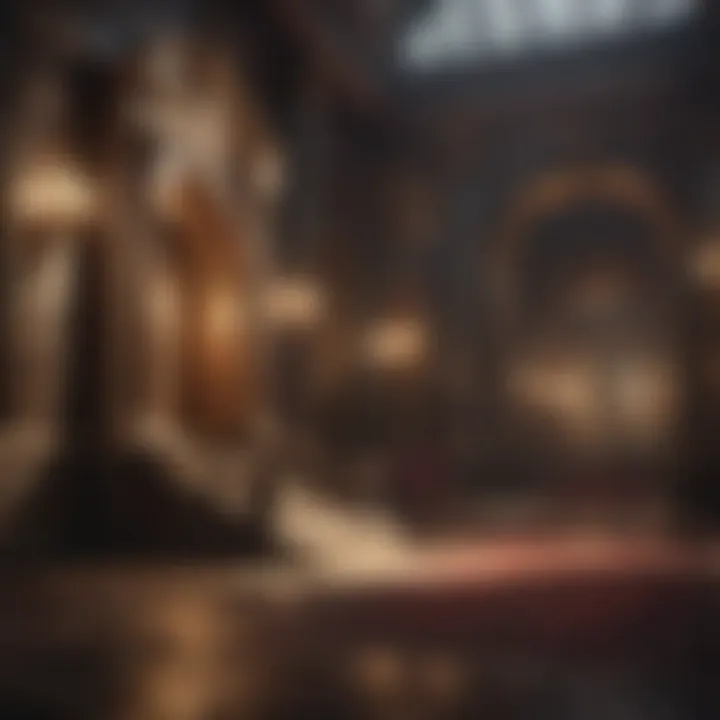
Musicality in Video Games
The musicality of video games plays a pivotal role in shaping the player’s experience. It's not just about catchy tunes or background noise; it’s a blend of sound, emotion, and storytelling that can invoke a spectrum of feelings. As players navigate through fantastical worlds, the music accompanying them can significantly enhance their emotional responses, making encounters feel more dramatic or serene depending on the score employed.
Beyond mere accompaniment, the integration of music into video games serves as a vital narrative element. For example, an ominous sound can foreshadow an approaching enemy, while a crescendo might accompany a dramatic boss fight. The consideration given to the score reflects an understanding of how sound influences perception and immersion.
As technology progresses, the sophistication of sound design has expanded, allowing for more complex interactions between gameplay and musical elements. This growth presents fascinating opportunities for exploring how operatic themes can be weaved into this framework, thus enhancing both forms—opera and video gaming.
Importance of Score and Sound Design
The soundtrack in a video game is crucial for several reasons:
- Emotional Resonance: Music in games has the power to evoke emotions, often dictating the player's feelings in key moments. Think of the haunting melodies in Final Fantasy VII that linger in the soul long after the game is put down.
- Atmosphere Setting: A game’s score can serve to establish an immersive atmosphere, whether it’s the eerie silence of a haunted mansion or the lively rhythms of a festival town in a vibrant RPG.
- Narrative Advancement: Just as in opera, where music drives the plot forward, in video games, sound can highlight critical plot points, enhancing the player’s understanding of the story.
Without a robust score and careful sound design, many games would feel flat, losing the draw of their worlds. The signature music of iconic games has become as renowned as the gameplay itself, often recognized on its own.
"In a way, the music becomes a character, guiding the player through the emotional landscape of the game."
Influence of Operatic Composition Techniques
Operatic composition techniques can find a surprising yet impactful place in video game score creation. The dynamics of opera—such as melodrama, recitative, and intricate counterpoint—can enhance the storytelling aspect of a game.
- Melodrama: Operatic pieces often amplify emotional themes through heightened expression. Game composers can use similar techniques in their scores to underline critical moments, similar to how The Legend of Zelda: Ocarina of Time deepens emotional stakes through its orchestral cues.
- Recitative Elements: The conversational quality in operatic music, where the music serves to mimic speech patterns, can be adapted for in-game dialogue, providing players with a more engaging narrative experience. This evokes feelings that go hand-in-hand with visual storytelling.
- Counterpoint: Layering melodies can create a rich tapestry of sound that reflects complex storylines. Games that implement this can enhance the feeling of depth and intricate world-building, drawing parallels with operatic forms.
In summary, recognizing the importance of musicality in video games not only enriches the gaming experience but also creates opportunities to introduce operatic elements that resonate with players. By exploring this intersection, the potential for innovative storytelling through melodies and harmonies expands, leading enthusiasts from both spheres to new horizons.
Notable Games That Integrate Operatic Elements
The fusion of operatic themes with gaming has proven to be a fruitful ground for exploration. While at first glance, these two forms of media might seem worlds apart, they share a deeper connection through narrative depth, emotional resonance, and aesthetic grandeur. Notable games that embrace operatic elements showcase how this blend not just enriches player experience but also elevates the medium of gaming itself. By interweaving dramatic storytelling and powerful musical compositions, these games highlight the potential for a profound emotional engagement, akin to that found in traditional opera. This section delves into three case studies that exemplify this synthesis.
Case Study: 'Final Fantasy' Series
The 'Final Fantasy' series serves as a stellar example of the operatic influence in gaming. Since its inception, this franchise has been at the frontier of integrating rich narrative with emotional music. The iconic themes, composed by Nobuo Uematsu, often echo grand operatic motifs. The battle themes, for example, are not just designed for tempo; they evoke a sense of urgency and heroism.
Several installments particularly stand out:
- Final Fantasy VI: The opera scene in this game is a direct homage to traditional opera. Players are not only engaged in gameplay but are also taken through a narrative arc that parallels the emotional depths of operatic storytelling.
- Final Fantasy X: Its usage of choral arrangements during pivotal scenes creates an atmosphere reminiscent of a grand opera performance, intensifying the player's emotional investment.
Through this unique amalgamation, 'Final Fantasy' proves that gaming can achieve a narrative sophistication similar to that of operatic performances.
Case Study: 'Bayonetta' Series
The 'Bayonetta' series takes a bold and avant-garde approach to marry gaming with operatic elements. Known for its stylish gameplay and rich visuals, this series doesn’t shy away from infused theatricality. The character's combat style often resembles a dancer, and the over-the-top narrative is delivered with flair that often mirrors the dramatic storytelling found in operas.
Bayonetta's gameplay incorporates:
- Lyrical Musical Scores: Operatic scores accompany many battles, blending orchestral elements with high-energy arrangements. The music shifts with the story, enhancing the intensity of the experience.
- Costuming and Set Design: The visual aesthetic makes heavy use of rich colors and dramatic settings, akin to a lavish opera. This deeper integration creates an immersive, multi-sensory experience that captivates players.
Through its operatic undertones, 'Bayonetta' not only entertains but invites players to acknowledge the artistry in its composition.
Case Study: 'The Legend of Zelda: Ocarina of Time'
'Ocarina of Time' is widely revered as a groundbreaking title in video gaming, with its linkage to musical elements being particularly noteworthy. The ocarina itself is more than a mere game mechanic; it serves as a narrative device, emphasizing the significance of music and memory—a core component of many operas.
Key aspects of this game include:
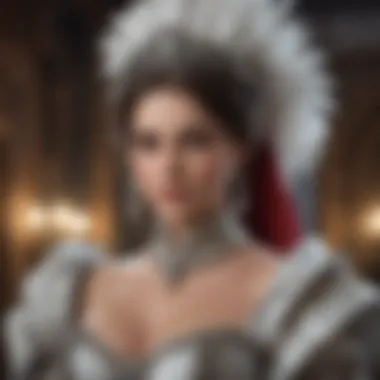

- Mood Setting Through Music: Each location is marked by distinct musical themes, influencing players' emotional responses. Whether it's the haunting melodies of the Forest or the bombastic tunes of Hyrule Field, each note serves its purpose.
- Operatic Moments: The game crafts moments where the protagonist’s journey mirrors the hero’s struggle found in operatic tales, magnifying the player’s emotional journey through gameplay.
The musical structure and thematic depth found in 'The Legend of Zelda: Ocarina of Time' exemplifies how operatic elements can enrich interactive storytelling and engage players on a profound level.
Overall, the seamless integration of operatic themes into these games marks a significant milestone in the evolution of storytelling in the gaming industry, offering a fresh lens through which to explore both music and narrative.
The Emotional Engagement of Players
In the ever-evolving landscape of video games, emotional engagement stands out as a cornerstone of player experience. When players dive into a game, they often seek more than just gameplay; they crave narratives that tug at their heartstrings and soundscapes that resonate within. This emotional connection can be profoundly intensified when operatic elements are woven into gaming. Through music, storytelling, and character development, the marriage of opera and gaming brings a unique flavor that captivates players and fosters deeper engagement.
Impact of Music on Player Experience
Music in video games is not merely an auditory backdrop; it's a vital thread that stitches together gameplay, narrative, and emotional responses. A well-crafted score can evoke feelings ranging from triumph to despair, transforming the player's experience drastically. When operatic themes are integrated, they amplify the emotional weight of scenes, making moments more memorable.
- Dynamic Scores: Games like "Final Fantasy" have shown how dynamic scores can elevate storytelling. The compositions adapt to player choices, reinforcing the emotional landscape during critical moments.
- Layered Soundscapes: The use of layered vocal techniques from opera, such as arias and choruses, adds organization to musical chaos, guiding players through emotional highs and lows. Imagine soaring melodies during a climactic battle or heartbreakingly slow adagios during pivotal, sorrowful scenes.
- Cultural Resonance: Familiar operatic pieces, like Verdi's "La Traviata" or Puccini's "La Bohème", can invoke nostalgia and deeper cultural connotations, enhancing how players relate to their in-game journey.
As players engage with the game, the right music envelops them, creating an emotional resonance that enhances the overall experience, making them feel seen, heard, and connected.
Operatic Themes and Player Emotions
Opera thrives on authentic emotional expression. When gaming adopts these themes, it opens a treasure chest of opportunities to deepen player emotions. Some noteworthy examples highlight this convergence:
- Character Arcs: Characters in operatic narratives often face epic struggles, betrayals, and redemptive arcs. Games that echo these themes, like "The Legend of Zelda: Ocarina of Time", allow players to immerse themselves in transformative journeys, feeling the weight of the character's choices.
- Narrative Complexity: Operas regularly explore intricate relationships and moral dilemmas. Gaming can offer similar narratives that force players to confront their own emotions and decisions, creating a sense of agency and investment.
- Visuals and Aesthetics: Many games utilize vibrant and compelling visuals complemented by operatic sound. This combination achieves a perfect symphony of color and sound, pulling players into a world that isn't just seen, but truly felt.
"The ability for music to convey emotion is what elevates simple gameplay into something that resonates with our hearts and souls.”
Cross-Pollination of Genres
The blending of distinct genres can breathe new life into both opera and gaming, creating a unique cross-pollination that offers fresh perspectives and experiences. This interplay between art forms can redefine creative expressions and broaden audience demographics. By weaving operatic elements into game settings or narrative structures, developers can harness the emotive power and sophisticated storytelling inherent to opera. This synthesis not only magnifies gameplay, but also cultivates a richer cultural dialogue that resonates with players and art aficionados alike.
Exploring Unique Genre Fusions
When we analyze the interactions between various genres, it becomes evident that engagement can sprout from unusual combinations. Gaming, often perceived as a pastime solely for entertainment, can borrow heavily from the profound emotional arcs typically found in operatic storytelling. Imagine a fantasy realm, where the stakes are as high as the dramatic operas of Verdi. Players navigate through not just quest lines, but also through emotional crescendos, much like a riveting operatic performance.
Incorporating operatic influences can manifest as epic soundtracks, character arcs laden with moral conflict, and even visual aesthetics that draw from traditional operatic themes. For instance, a game designed with the lavish spectacles of a grand opera in mind could create an immersive environment that mirrors the theatricality of live performances. Here are a few key elements that make the fusion compelling:
- Narrative Depth: Merging the rich narrative structures of opera with gameplay leads to more engaging plots.
- Emotional Impact: Similar to how opera stirs emotions through music, games can evoke a range of feelings through strategic score placements.
- Artistic Influence: The elaborate sets and costumes found in operas can inspire stunning visuals in gameplay design.
Case Examples of Successful Genre Blends
Examples abound in the vast landscape of gaming that showcase this cross-pollination effectively. One notable instance is the "Final Fantasy" series, where each installment often features operatic music elevating pivotal scenes. The iconic aria "Answers" from Final Fantasy XIV draws directly from operatic tradition, offering players not just a game, but an emotional experience that speaks to the heart.
Another example is the "Bayonetta" series, which showcases a melding of game mechanics with operatic visuals and sound. The protagonist's fight sequences are underscored with classical music, drawing parallels to opera's musical fusion with drama. It shapes the gameplay rhythm and heightens the stakes at dramatic moments, not unlike a climactic aria.
"The art of narrative in games is akin to a libretto in opera; it creates a canvas for the music, emotions, and themes to intertwine, offering a masterpiece in interactivity."
Yet another reference is "The Legend of Zelda: Ocarina of Time". This game incorporates musical motifs that serve both gameplay mechanics and storytelling, echoing the operatic tradition where music conveys character emotions and plot developments.
Routine exploration of these genre blends reveals how innovative approaches can resonate through culture, ultimately appealing to a diverse range of people. As developers continue to experiment with these cross-genre elements, the potential for further enrichment of both opera and gaming cultures remains boundless.
Cultural Implications of Merging Opera and Gaming
The merging of opera and gaming culture presents a fascinating landscape of cultural dialogue. This intersection not only enriches the experience for players but also serves as a bridge to expand the appreciation of opera among a wider audience. As the gaming industry continuously evolves, the infusion of operatic elements into video games crafts an intriguing narrative where storytelling meets art.
Broadening Cultural Appreciation
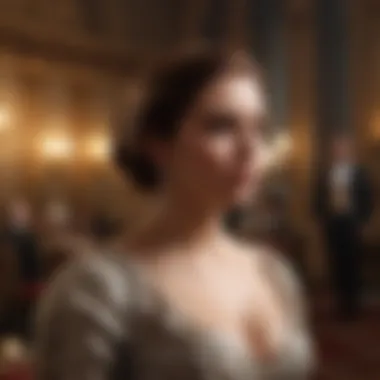
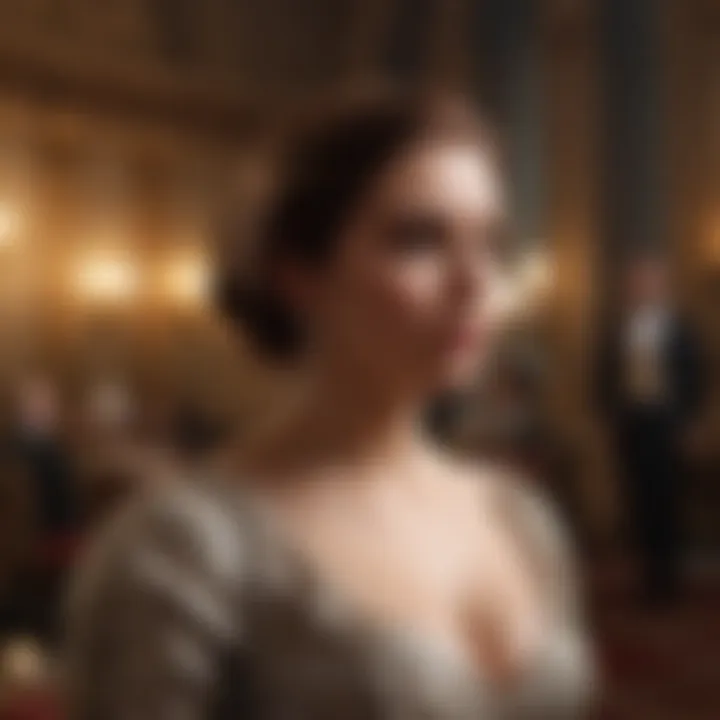
The integration of operatic themes in video games has the potential to democratize access to this timeless art form. Opera, traditionally viewed as an exclusive cultural domain, often alienates those unfamiliar with its nuances. However, when operatic motifs are interwoven into the fabric of gaming, they become more approachable.
- Familiarity: Players encountering operatic music and narratives while gaming may find themselves intrigued, prompting them to explore opera outside the digital realm. This exposure can shift perceptions, making opera less of a lofty endeavor and more of a shared experience.
- Accessibility: Games like "Final Fantasy" and "Bayonetta" utilize impactful musical scores that echo operatic traditions. Through melodies and storytelling, players are invited to experience drama and emotion in ways that may resonate on a personal level.
- Diverse Audience: By incorporating operatic elements into the gaming landscape, the traditional barriers of opera are broken down. Gamers of all backgrounds, from seasoned players to newcomers, may discover operatic performances in a much more relatable context than they would in a classic theater setting.
Ultimately, this cultural blending fosters a greater understanding of opera’s enduring relevance and emotional power.
Challenges in Acceptance of Operatic Concepts
Despite the potential benefits, the marriage of opera and gaming is not without challenges. The acceptance of operatic concepts in the gaming community often contends with misconceptions and biases that both art forms carry.
- Artistic Authenticity: Some purists argue that incorporating operatic influences in gaming dilutes the essence of both art forms. They may see it as inauthentic, questioning whether a gaming context can effectively convey the depth and richness of opera.
- Audience Expectations: Gamers may approach operatic content with preconceived notions. Many video game players, accustomed to action-driven or lowbrow narratives, may find it difficult to engage with more serious or dramatic operatic themes. This resistance could create a divide, hindering the potential for a deeper appreciation of both art forms.
- Commercial Viability: There's a palpable tension regarding the commercial aspects of merging these worlds. Developers might hesitate to take creative risks when blending operatic elements within games, fearing that it could alienate segments of their audience, leading to more conventional narratives instead.
"As video games evolve into a more sophisticated art form, they hold the power to redefine familiar cultural narratives. The challenge lies in how effectively we can integrate these narratives without losing their essence."
To navigate these challenges, both sectors can engage in meaningful conversations. The dialogue should explore how to maintain artistic integrity while inviting new audiences into the world of opera through the immersive experiences that gaming provides.
Future of Opera in Gaming
The future of opera in gaming stands as a crossroads where tradition and innovation come together, leading to nascent possibilities that hold tremendous value for creators and players alike. As we dissect the implications of this intersection, it becomes evident that the integration of operatic elements can not only enhance gaming narratives but also broaden the scope of cultural appreciation among its audience.
Bringing opera into the gaming fold isn’t merely about slapping a grand arioso onto the soundtrack or dressing characters in elaborate costumes. It’s about weaving complex emotional stories, rich character arcs, and vivid atmospheres that breathe life into the game, engaging players on an entirely new level. The collaborative nature of these two art forms may ignite a renaissance of creativity, leading to a palette of experiences that don’t just entertain but enlighten.
Trends to Watch in the Industry
- Incorporation of Operatic Scores: It's likely that many upcoming titles will begin using operatic music not just to enhance, but to drive the narrative. Composers will learn to draw upon the intense emotional weight that opera brings.
- Innovative Storytelling Approaches: Games are gradually adopting more complex narrative structures that can mirror the historical grandeur and emotional depth found in opera. Expect to see more games unfolding as multi-act stories that engage players not just through gameplay but through a theatrical experience.
- Collaborative Projects Across Mediums: With more pop-culture interest in both gaming and opera, expect partnerships to form between game developers and opera companies. This could birth unique cross-genre experiences – think of an opera performance incorporating real-time gaming elements, bringing interactivity to the stage.
- Recognizing Dedicated Genres: As operatic elements become more prominent, genres such as rhythm-based games may start to evolve into operatic journeys, moving away from traditional scoring toward dramatic interpretations.
- Virtual Reality Experiences: Combining VR technology with operatic themes could lead to immersive worlds where players can not only play but feel, losing themselves in narratives that reflect grand operatic escapades.
Potential Collaborations and Projects
The interplay of opera and gaming also opens doors for innovative collaborations that promise to reshape both industries profoundly. Some possibilities include:
- Full-Length Operatic Games: Games designed from the ground up to serve as an interactive opera could emerge. Imagine a game that tells a story like Carmen but allows players to influence the outcome through their choices.
- Concerts with Interactive Gameplay: Live performances where gamers can interact with the opera in real time could merge two cultural experiences. Players might engage in combat scenes that follow the musical crescendos of an operatic score, feeling that their actions genuinely impact the flow of the performance.
- Training Simulations: Developers could create games that simulate real operatic performances, allowing users to experience the intricacies of staging and performing an opera—providing a hands-on, albeit virtual, approach to art education.
"The fusion of gaming and opera might not only influence narratives but could allow for a fresh appreciation of both art forms and engage a broader audience."
The integration of operatic elements into gaming is not just a trend; it’s a growing dialogue that stands to redefine how stories are told, understood, and experienced in the 21st century.
As these trends continue to unfold, the potential for collaboration will likely evolve, leading to groundbreaking projects that can resonate with both opera aficionados and gamers alike.
End: The Symbiosis of Two Worlds
In this exploration of the intertwining realms of opera and gaming culture, we recognize that their convergence is kind of a new frontier. Much like two rivers that merge to create a new flow, the blend of operatic elements in video games has the potential to enrich both art forms significantly. By fostering a dialogue that draws on the strengths of each, creators can craft deeper, more resonant narratives that not only capture the imagination but also touch upon the profound emotional undercurrents that exist in storytelling.
The significance of this fusion lies in several key aspects. For one, it allows for a broader cultural appreciation among gamers, presenting opera not as an archaic art form, but as a living, breathing entity that continues to evolve and adapt. Gamers often find themselves wrapped up in the rich narratives that video games provide, so showcasing operatic themes can enhance their experience and cognition. This integration has the potential to invite new audiences into opera’s embrace, who might not have considered it accessible or relevant before.
Moreover, the emotional engagement derived from operatic music can elevate the gamer’s experience, creating a more immersive atmosphere. Video game music often falls flat without the right context; however, when infused with operatic depth, it can stir feelings that resonate long after the console is turned off. This musicality serves to underscore key plot points or character developments, forging a connection that may drive a player’s investment in a narrative to unprecedented levels.
"Art is the most beautiful of all lies." — Claude Debussy
This quote highlights the essence of merging these two worlds. Just as Debussy wove together different styles to create something fresh, the combination of gaming and opera offers new pathways of exploration and emotional storytelling.
Reflecting on the Dialogue Between Forms
When one considers the interaction between opera and gaming, it becomes evident that dialogue is central to this relationship. An effective conversation arises when both parties are willing to share ideas and be influenced by one another's strengths. Opera, steeped in tradition, provides a wealth of narrative devices, character types, and emotional experiences that can enhance a game’s depth. Conversely, gaming offers operatic elements a platform to reach wider audiences, to evolve, and to reflect contemporary societal themes.
For creators and consumers alike, this dialogue leads to greater innovation. Developers, inspired by operatic drama and musical flair, can infuse their games with more than just aesthetics—they can bring rich, layered storytelling that captivates. Imagine role-playing games where the moral stakes resemble those of an epic opera, or adventure titles that incorporate tragic love stories set to haunting scores. These elements create a tapestry of experiences that compel players to think more profoundly about their choices and their meanings.
Encouraging Exploration Beyond Traditional Boundaries
In encouraging exploration beyond traditional boundaries, it's important to note that both opera and gaming have long been pigeonholed into elitist and juvenile stereotypes, respectively. However, as these two worlds collide, they challenge each other’s norms and push the envelope on what is acceptable.
Consider the implications for interdisciplinary collaboration. Artists who work in opera and gaming will find opportunities to innovate, producing works that reflect multifaceted identities and genres. This move can facilitate an environment where operatic classics can be reinterpreted through the lens of gaming mechanics, providing fresh narratives that resonate with gamers and opera lovers alike.
Also, there's subjective merit in the quality of experience these games provide. By integrating operatic storytelling, the gaming experience becomes not simply a form of entertainment but a bridge to a deeper understanding of human emotion, morality, and artistry.
In summary, the merging of opera and gaming culture is not only about fusing two artistic forms. It's also about embracing an enhanced narrative capability, crafting deeper emotional connections, and inviting a broader audience to participate in an evolving conversation that welcomes all into the fold, regardless of their initial preconceived notions.







